Key takeaways:
- Crypto mining platforms balance accessibility and technical sophistication, simplifying complexities for novice and experienced miners alike.
- Task management software is essential for organizing tasks, improving efficiency, and facilitating team collaboration.
- Common challenges in task management include prioritization, lack of project visibility, and communication issues, which can lead to chaos if not addressed.
- Adaptability and community engagement are vital in overcoming task management obstacles, allowing for better insights and improved decision-making.
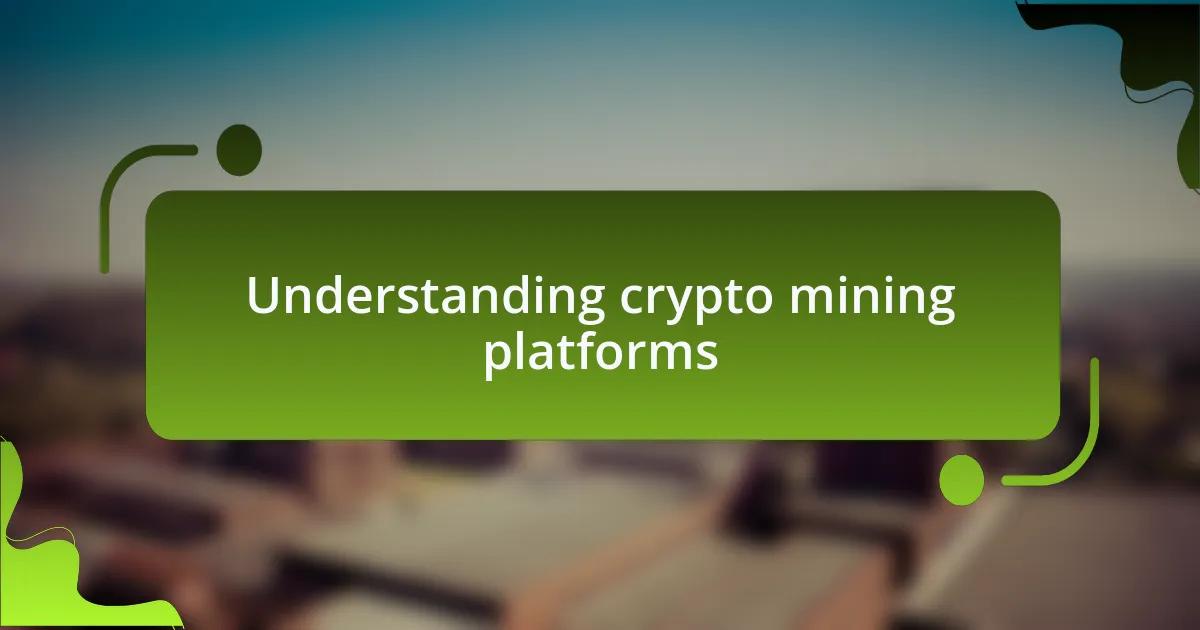
Understanding crypto mining platforms
When I first stumbled into the world of crypto mining, I was struck by the sheer complexity of the platforms available. Each one had its own set of features, appealing to different types of miners. I remember standing in awe, wondering how these platforms could make the mining process not just feasible but efficient for countless users.
One crucial aspect of understanding crypto mining platforms is recognizing the balance they strike between accessibility and technical sophistication. I recall the frustration of trying to grasp the technical jargon that often accompanies these tools. It made me wonder—how can we bridge the gap between novice miners and the more experienced ones? The best platforms manage to simplify these complexities while still offering the advanced features that seasoned miners seek.
As I delved deeper into this space, I found that the best mining platforms provide robust support and community engagement. It’s like finding a trusty mentor when you’re lost in unfamiliar territory. Have you ever felt overwhelmed by choices? For me, the right platform not only answered my questions but also built a community around shared experiences and learning. This sense of belonging made the journey of learning how to mine feel less daunting and much more rewarding.
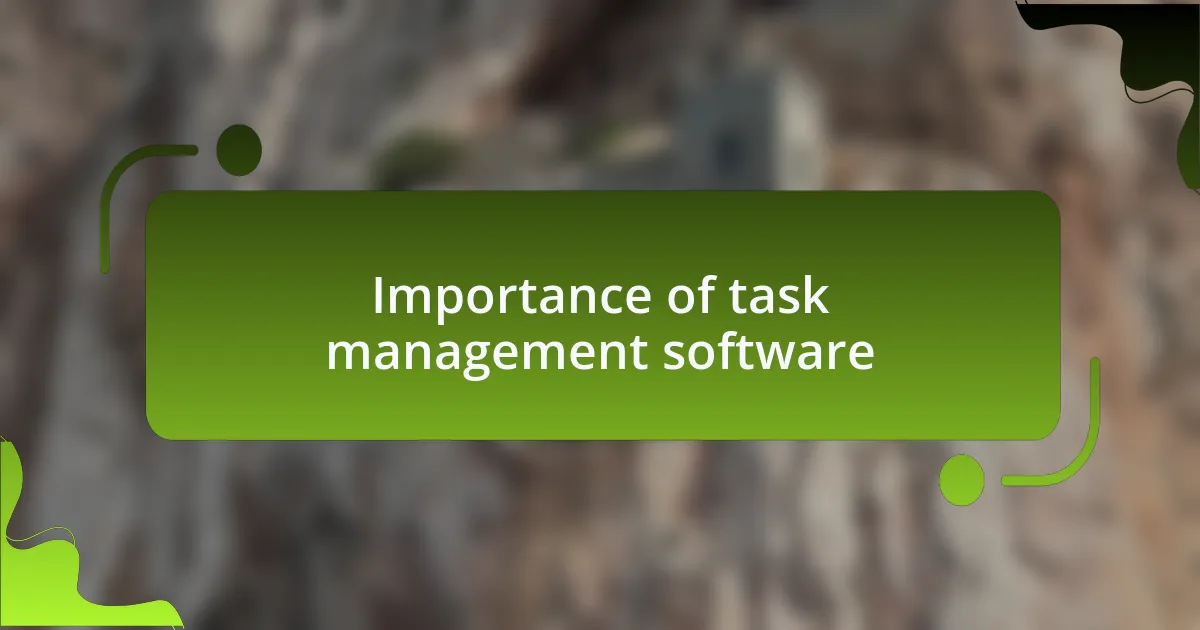
Importance of task management software
Task management software plays a pivotal role in streamlining workflows, especially in a complex field like crypto mining. I remember feeling overwhelmed by the breadth of tasks involved in managing multiple mining rigs. It dawned on me that without a clear plan and a way to track progress, I might miss critical maintenance or updates, leading to potential downtime and financial loss.
Using task management software allows me to break down my projects into manageable tasks, ensuring that nothing slips through the cracks. One evening, I found myself juggling several mining contracts, and the ability to visualize my priorities and deadlines made all the difference. Can you imagine trying to keep track of multiple deadlines without a clear system? I realized then that this type of software not only enhances my efficiency but also reduces the stress associated with managing numerous responsibilities.
Moreover, effective task management fosters collaboration, especially when working with teams of miners or developers. I vividly recall a group project where clear communication about each member’s tasks was essential for success. The software helped us stay on the same page, ensuring everyone knew their roles and deadlines. It’s a bit like orchestrating a symphony; if one instrument is out of sync, the entire piece can falter. Task management tools, in this sense, are more than just organizers—they are the backbone of a well-functioning team.
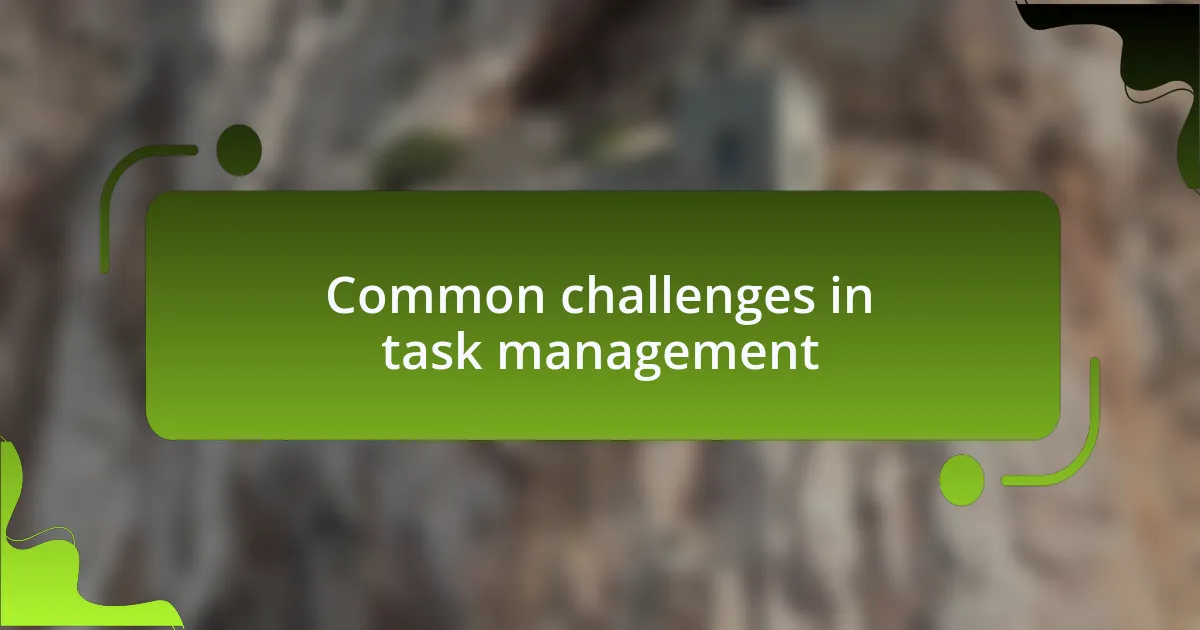
Common challenges in task management
When it comes to task management, one of the most common challenges I’ve faced is prioritization. There are times when 10 tasks feel equally urgent, and I found myself questioning, “Which one do I tackle first?” I vividly remember a day when I was torn between updating my mining software and negotiating a new contract. It was overwhelming—like trying to swim through molasses. Without a clear system to set priorities, critical tasks could easily get lost in the shuffle.
Another hurdle that often crops up is the lack of visibility across projects. In one instance, I was coordinating with a few partners, and it was frustrating to constantly check in for status updates. It made me realize how essential it is to have a centralized platform where each task’s progress is visible. Have you ever experienced that sinking feeling when you discover a task isn’t moving forward as planned? It can feel like a punch in the gut, especially when deadlines are looming.
Communication issues can also pose significant challenges. I remember a project gone awry due to miscommunication between team members about task responsibilities. Each person thought someone else was on it, and by the time we realized the mistake, it was nearly too late. It struck me then how vital it is to have clear channels for discussion, so everyone knows who is doing what. When you’re navigating the complexities of task management, clarity is crucial; without it, the whole operation can quickly turn chaotic.
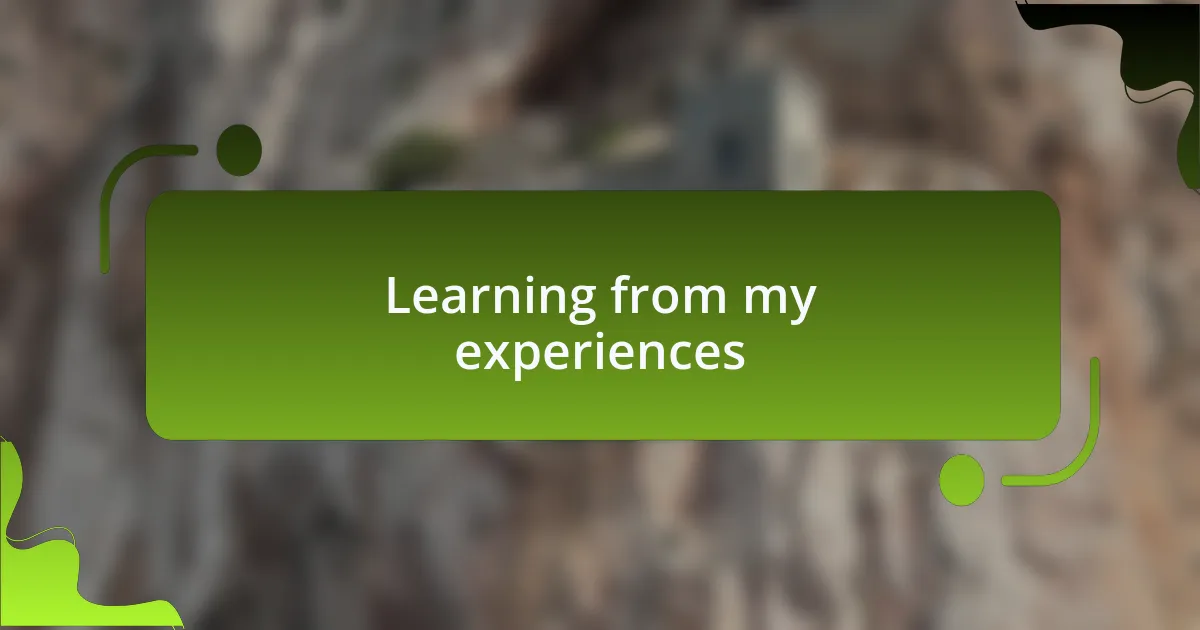
Learning from my experiences
One of the most profound lessons I learned from my journey in task management is the importance of adaptability. There was a time when I stubbornly clung to a method that I thought was effective, only to realize it was slowing me down. The moment I decided to embrace new tools and techniques, like automation, not only did my efficiency improve, but I also felt a palpable reduction in stress. Have you ever held onto a process that was just holding you back? Sometimes, letting go is the key to moving forward.
As I navigated the complexities of managing tasks, I discovered that reflecting on past experiences can be incredibly enlightening. For example, after a particularly chaotic week, I took time to analyze what went wrong and found that I hadn’t built in enough buffer time for unexpected issues. This realization transformed my planning approach, allowing me to create more realistic timelines that accommodated surprises. Isn’t it remarkable how a bit of introspection can lead to better decision-making?
Lastly, I realized the power of community in overcoming obstacles. When I reached out to fellow miners for advice on their task management strategies, I was surprised by how many shared similar struggles. Hearing their stories not only validated my own experiences, but also provided me with new perspectives and solutions I hadn’t considered. Have you ever tapped into the wisdom of others and found clarity? It’s often in those conversations that we discover practical insights that can significantly enhance our approach to tasks.
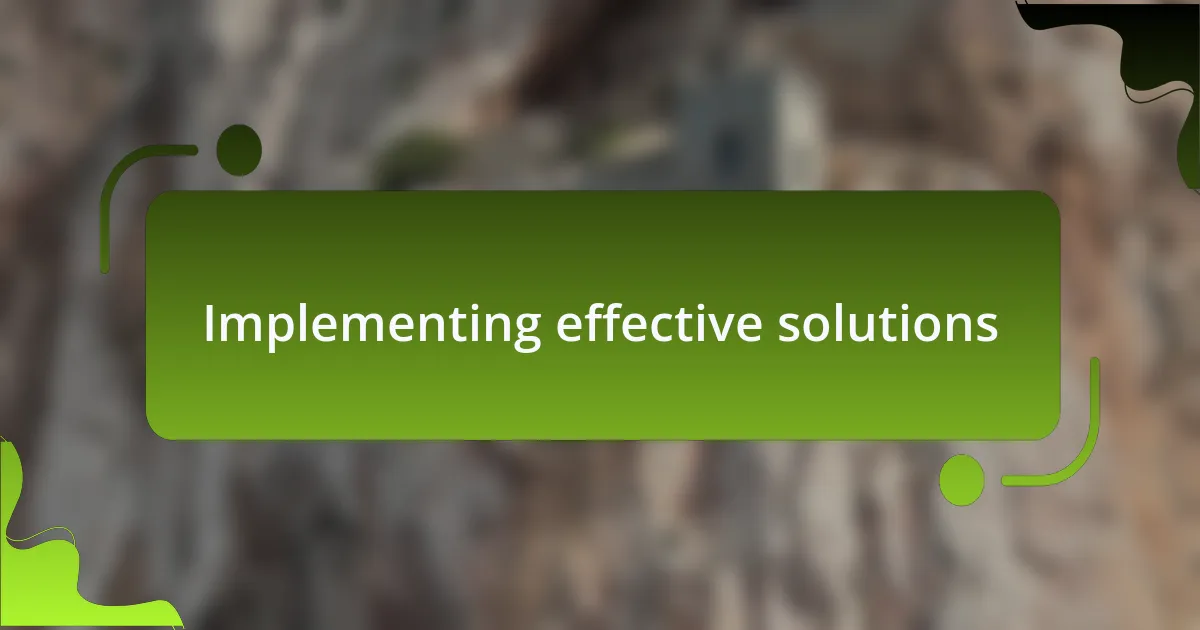
Implementing effective solutions
Implementing effective solutions requires a willingness to experiment with different techniques and tools. I remember the first time I integrated a project management app into my routine; it felt daunting at first. But what I found was a newfound clarity and organization in my tasks that I hadn’t experienced before. Have you ever hesitated to change your approach just because the old way felt comfortable?
In my journey, I discovered that regular reviews of my task management processes were crucial. One day, I dedicated an afternoon to examining my workflow—every tool and method I was using. In doing so, I uncovered several redundancies that were eating away at my productivity. This intentional pause for reflection made me realize that even small adjustments could lead to significant improvements. Isn’t it empowering to recognize that we have the ability to refine our strategies?
In seeking effective solutions, I’ve learned that collaboration plays a critical role. I once teamed up with a colleague to tackle a particularly challenging project, and as we brainstormed, we pooled our insights and resources. The outcome was remarkable; by combining our strengths, we not only streamlined our tasks but also increased our overall output. Have you considered collaborating with others and how it might enhance your efficiency? Sometimes, the best solutions emerge from partnership and shared experiences.